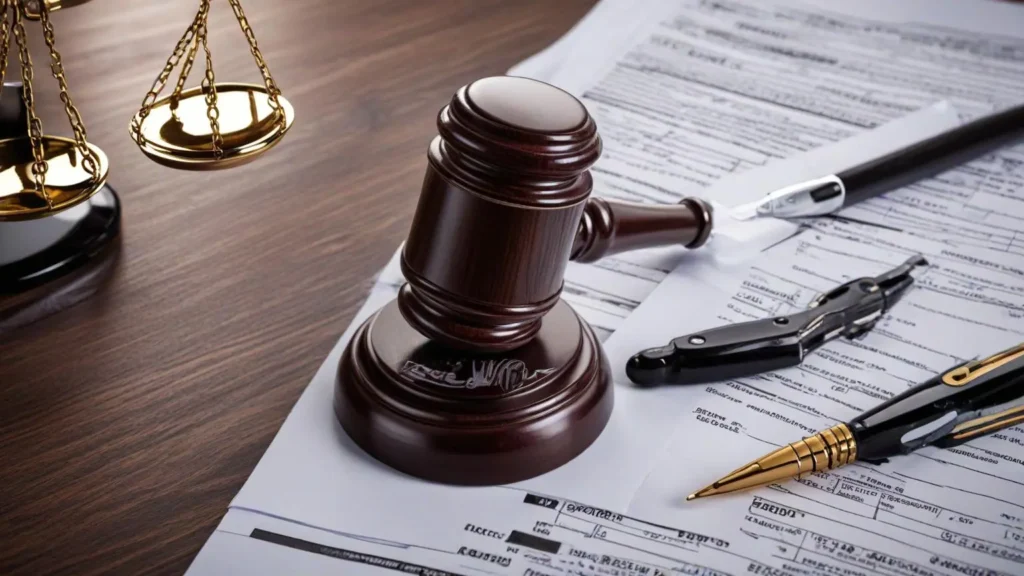In today’s competitive business environment, protecting your intellectual property (IP) is crucial for safeguarding innovations and maintaining a competitive edge. Understanding the range of IP attorney services available can help you make informed decisions about how best to protect your business’s assets.
In this article, we will explore the essential IP attorney services every business should consider, discuss key factors to evaluate when choosing the right IP attorney, and provide insights into the concerns of IP attorneys and where they typically work.
What Are Intellectual Property Attorney Services?
Intellectual Property (IP) attorneys offer specialized legal services designed to help businesses protect, manage, and enforce their IP rights. These services are essential for ensuring that a company’s innovations, branding, and creative works are legally protected from infringement and misuse.
Key IP Attorney Services for Businesses
Here are some of the most critical IP attorney services that every business should consider:
| IP Attorney Service | Description |
|---|---|
| Patent Filing and Prosecution | Assisting with the application process for patents, including drafting, filing, and negotiating with patent offices. |
| Trademark Registration and Protection | Helping businesses register trademarks, conduct trademark searches, and enforce trademark rights. |
| Copyright Registration and Enforcement | Managing copyright applications, protecting creative works, and addressing copyright infringements. |
| Trade Secret Protection | Advising on strategies for protecting confidential business information and drafting non-disclosure agreements. |
| IP Litigation | Representing clients in disputes over IP rights, including infringement cases and negotiations for settlements. |
| IP Portfolio Management | Developing strategies for managing a business’s IP assets, including assessing value and strategizing for growth. |
| IP Strategy Development | Formulating long-term IP strategies that align with business goals and market opportunities. |
| IP Licensing and Transactions | Negotiating and drafting IP licensing agreements, handling IP acquisitions, and managing IP transfer processes. |
| IP Audits | Conducting comprehensive reviews of a company’s IP assets to identify opportunities and risks. |
| IP Valuation | Evaluating the financial worth of IP assets for investment, sales, or legal purposes. |
What 4 Things Should You Consider When Choosing the Right Business Lawyer?

Choosing the right IP attorney involves careful consideration of several factors. Here are four essential things you should consider:
Expertise and Specialization
Why It Matters: IP law is a specialized field with various branches, including patents, trademarks, copyrights, and trade secrets. It is crucial to choose an attorney with expertise in the specific area of IP law relevant to your needs.
What to Look For:
- Credentials: Look for attorneys with relevant qualifications and experience in IP law.
- Specialization: Ensure that the attorney has a proven track record in handling cases similar to yours.
- Client Reviews: Check client testimonials and reviews to gauge the attorney’s reputation and effectiveness.
Example: If you need help with a patent application, seek an attorney with a background in patent law and experience with patent filings.
Communication Skills
Why It Matters: Effective communication is essential for understanding your IP needs and for the attorney to explain complex legal concepts in a way you can understand.
What to Look For:
- Clarity: The attorney should be able to communicate legal terms and procedures clearly.
- Responsiveness: Evaluate how quickly and effectively the attorney responds to your inquiries.
- Consultation Approach: Look for attorneys who offer initial consultations to discuss your IP needs and strategies.
Example: A good IP attorney will be able to break down the patent application process and keep you informed about the progress.
Experience with Similar Clients
Why It Matters: Experience with businesses of similar size or in the same industry can be an indicator of how well the attorney understands your specific IP challenges.
What to Look For:
- Industry Experience: Check if the attorney has worked with clients in your industry.
- Client List: Review the types of businesses and industries the attorney has served.
- Case Studies: Ask for examples of past cases or projects that are similar to your situation.
Example: If you run a tech startup, find an IP attorney who has experience with technology companies and understands tech-related IP issues.
Cost and Fee Structure
Why It Matters: Understanding the cost and fee structure helps you avoid unexpected expenses and ensures that the attorney’s services are within your budget.
What to Look For:
- Fee Transparency: Ensure that the attorney provides a clear breakdown of fees and billing practices.
- Pricing Models: Understand the pricing models, whether it’s hourly rates, flat fees, or contingency fees.
- Value for Money: Evaluate the services offered in relation to the cost.
Example: Some IP attorneys offer fixed-fee packages for services like trademark registration, which can be more cost-effective for startups.
What Concerns Must an Attorney Have When Determining What a Client Wants?

When determining what a client wants, an IP attorney must consider several key concerns:
Client’s Objectives and Goals
Why It Matters: Understanding the client’s long-term business goals helps the attorney provide legal services that align with those objectives.
Concerns:
- Business Goals: What are the client’s short-term and long-term business goals?
- IP Needs: What specific IP protections or strategies does the client need?
- Expectations: What are the client’s expectations for legal outcomes and services?
Example: An attorney might discuss your plans for expanding into new markets to ensure that your IP strategy supports future growth.
Scope of Work
Why It Matters: Defining the scope of work ensures that both the attorney and the client have a clear understanding of what services will be provided.
Concerns:
- Service Requirements: What specific services does the client require?
- Project Scope: What is the scope of the legal work, and what are the deliverables?
- Timeline: What are the deadlines and milestones for the project?
Example: If you need a patent, the attorney will clarify whether the service includes only the application or also ongoing prosecution and enforcement.
Legal Risks and Challenges
Why It Matters: Identifying potential legal risks helps the attorney advise the client on how to mitigate those risks.
Concerns:
- Legal Risks: What are the potential legal challenges related to the client’s IP needs?
- Risk Mitigation: How can the client minimize legal risks?
- Legal Challenges: What obstacles might arise during the legal process?
Example: An attorney might identify potential trademark conflicts or issues with a patent application that need to be addressed.
Client’s Understanding of IP Law
Why It Matters: Assessing the client’s knowledge helps the attorney gauge how much explanation and education will be needed.
Concerns:
- Knowledge Level: What is the client’s understanding of IP law and legal processes?
- Educational Needs: How much does the client need to be educated about IP law?
- Communication: How will the attorney communicate complex legal concepts?
Example: An attorney may need to explain the basics of copyright law if the client is unfamiliar with the concept.
Where Do Most IP Lawyers Work?
IP lawyers work in a variety of environments depending on their specialization and career goals. Here’s a look at where most IP lawyers work:
Law Firms
Description: Many IP attorneys work in law firms that specialize in IP law or offer it as one of their services. These firms handle a broad range of IP issues, from patent filings to trademark disputes.
Examples: Large firms with IP departments like Finnegan, Henderson, Farabow, Garrett & Dunner LLP or Kirkland & Ellis LLP.
Corporate Legal Departments
Description: Some IP attorneys work in-house for companies, managing the company’s IP portfolio and providing legal advice on IP matters.
Examples: Corporate legal departments at companies like Apple Inc., Microsoft Corp., or Google LLC.
Government Agencies
Description: IP lawyers may work for government agencies that oversee IP laws and regulations, such as the United States Patent and Trademark Office (USPTO) or the European Patent Office (EPO).
Examples: Roles in USPTO, EPO, or WIPO.
Academic and Research Institutions
Description: IP attorneys may work in academic institutions focusing on research, policy development, and IP education.
Examples: Stanford Law School, Harvard Law School, or University of California, Berkeley.
Non-Profit Organizations
Description: Some IP attorneys work for non-profits that focus on IP advocacy, education, and policy reform.
Examples: Electronic Frontier Foundation (EFF), Creative Commons, or Public Knowledge.
Consultancies and Think Tanks
Description: IP attorneys may work in consultancies or think tanks providing specialized advice on IP law and policy.
Examples: Bain & Company, McKinsey & Company, or Brookings Institution.
Conclusion
Understanding the essential IP attorney services available to businesses and knowing how to choose the right attorney are critical steps in protecting your intellectual property. By considering factors such as expertise, communication skills, and cost, you can make informed decisions about legal representation. Additionally, recognizing the concerns of IP attorneys and where they work helps you appreciate the breadth of the field and the range of services offered.

